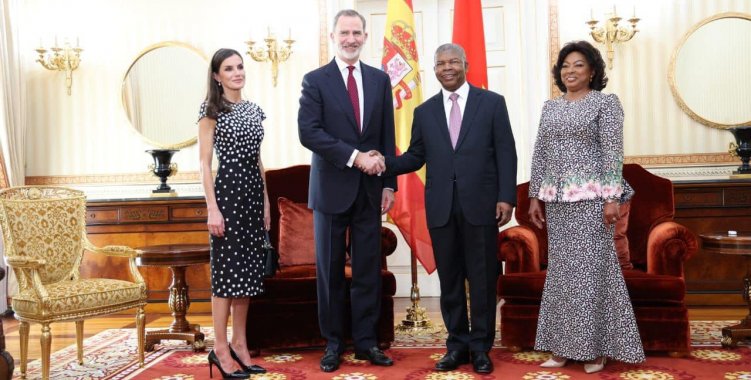The analysis is by the Researcher of the Center for International Studies at ISCTE-IUL (CEI-IUL) Eugénio Costa Almeida, regarding the visit to Angola of the kings of Spain, Felipe VI and Letizia, starting on Monday, on their first trip to a country in sub-Saharan Africa.
"There has always been a great rapprochement between Spain and Angola", said the analyst, recalling the stay of José Eduardo dos Santos, the president who died in July last year, in Barcelona, where he spent his last years of life.
José Eduardo dos Santos, who presided over the destinies of Angola for almost 40 years, died aged 79 in Spain, where he moved in 2019, moving away from the Angolan regime and his successor, João Lourenço, who elected his children and closest collaborators as targets in the fight against corruption.
Madrid and Luanda have strengthened relations in recent years, in diplomatic terms, with visits at the highest level: João Lourenço, elected president in 2017, visited Spain that same year, still as Minister of National Defence, and repeated his visit to the country, already as chief executive, in 2021, the year in which he also received Spanish Prime Minister Pedro Sánchez in Angola.
"This visit will also have the function of affirming institutionally, diplomatically, the good relationship that exists between the Kingdom of Spain and the Republic of Angola", underlined the researcher.
But also on the economic and political level, the rapprochement is evident.
He is a Spaniard who currently leads the TAAG flagship company, it was a Spanish company that was chosen to ensure the electoral logistics of last year's elections (despite opposition from the opposition), and it was in Spain that the body of José Eduardo dos Santos was disputed. Saints.
The death of the former President, on the eve of the 2022 elections, led to a large-scale Angolan diplomatic offensive, following the legal proceedings brought by the former president's well-known eldest daughters, Isabel and Tchizé dos Santos, who resorted to the courts to try to stop the transfer of the body to Angola as intended by the widow and mother of the three youngest children, Ana Paula dos Santos, supported by the government of João Lourenço.
The dispute did not last long and Luanda won the tussle, receiving, on the 20th of August, four days before the elections, the urn with the body that would be buried on the 28th of August, in a State funeral, to the satisfaction of the Angolan regime, but with little popular participation in the funeral ceremonies.
"All of this has an impact. The good and cordial acts deserve thanks", commented the specialist in international relations.
"We are not naïve to the point of thinking that there has not been diplomatic pressure to draw attention to the convenience of good relations with Luanda", added Eugénio Costa Almeida, pointing to the way in which this matter was being postponed and made uncomfortable both for Madrid and for to Luanda and its quick resolution.
In some aspects, the analyst even considers that there is a better institutional relationship between Luanda and Madrid than between Luanda and Lisbon, underlining that Madrid is closer to the center of Europe than Lisbon.
While Portugal maintains a "more familiar" relationship with Angola, where there are "ups and downs, arguments, quarrels", other relationships are more institutional, centered on economic and party-political interests, he said, considering that João Lourenço tends to approach increasingly from the western bloc.
"Madrid is much closer to the Paris-Berlin axis, which is what manages the European Union than Lisbon, and there you can understand the position of the Angolan government. Portugal may feel that it is becoming subaltern, but it is António Costa's government that has to know what it has to do. Countries have interests to defend," he noted.
According to the program to which Lusa had access, the arrival of the Spanish monarchs is scheduled for Monday, but the official visit begins only on Tuesday with a trip to Praça da Republica – where the António Agostinho Neto Memorial is located and the tomb of former President José Eduardo dos Santos – preceding a meeting with João Lourenço.
A decoration ceremony and the signing of agreements are scheduled to take place at the Presidential Palace, followed, in the afternoon, by a visit to the Banco Económico building, where an exhibition by the Catalan painter Joan Miró will be inaugurated, and a meeting with the Spanish community.
The business forum, which brings together businessmen from both countries, will take place on Wednesday.
On the same day, the kings of Spain also visit the National Assembly and the Museum of Military History, before returning to the country in the afternoon.







